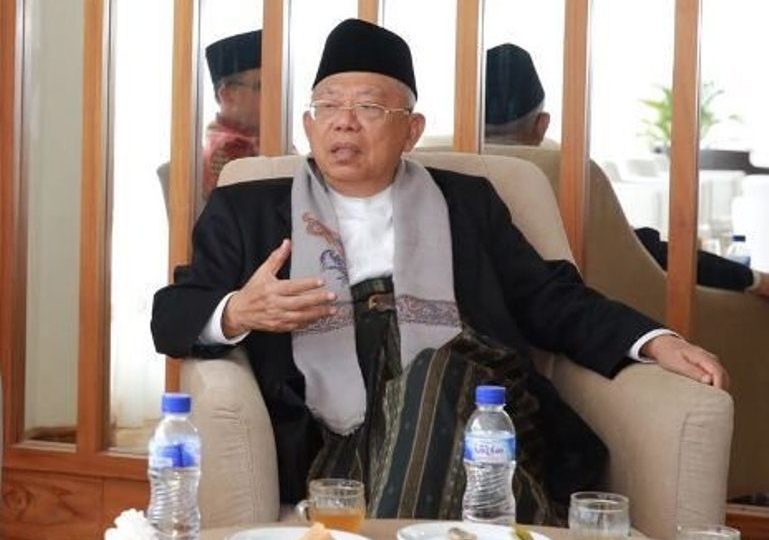Fresh off announcing yesterday that he never really left his post as chairman of the Indonesian Ulema Council (MUI) after being named President Joko Widodo’s running mate, Ma’ruf Amin attended a discussion for the ongoing measles-rubella (MR) vaccination haram paranoia and said something his organization should have said a long time ago: that immunizations should be mandatory.
At the discussion, which was held in Jakarta yesterday afternoon and attended by Ma’ruf himself and Health Minister Nila Moeloek, the senior Islamic scholar clarified the importance of the government’s MR vaccination drive despite MUI having previously announced that the the vaccine contained trace amounts of pork by-products, which are haram (forbidden) for consumption by Muslims.
“If there is a present danger, risk of disease or birth defects, then this immunization is not only permissible, it’s also wajib,” Ma’ruf said, using an Islamic term for something that is mandatory to perform and sinful if neglected, as quoted by CNN Indonesia.
Ma’ruf added that an exemption to consume haram products if necessary was issued in a fatwa (religious edict) in 2016 in which MUI ruled that vaccines, halal or otherwise, can be administered to children who would otherwise get sick.
Despite the existence of said fatwa, however, MUI still demanded to examine the MR vaccine for potential haram content this year, delaying the government’s massive nationwide vaccination drive and stoking anti-vaccine fears across the archipelago. Even after the MUI issued another fatwa specifically allowing the MR vaccine in late August, the paranoia surrounding the vaccine had already greatly slowed down the the program.
According to the government officials, only 43 percent of the targeted 32 million children have been given the MR vaccine as of last week, far below the government’s target of 95 percent they should have achieved by that point. Officials say health workers around Indonesia have even been threatened with physical violence by unwilling parents, some of whom carried machetes.
Ma’ruf tried to shield MUI from blame for the MR vaccine controversy, saying that the government should have sought a fatwa by MUI for the vaccine before deciding to carry out a nationwide drive (again, this is despite the existence of the 2016 fatwa which should rule the MR vaccine permissible for consumption by Muslims).
“Unfortunately the Health Ministry did not immediately ask for a fatwa for the vaccine. So they only asked for it in 2018,” he said.
Doctors have warned that areas of the country like Aceh, which has only had 7% of children targeted by the latest vaccination drive immunized, could experience an “MR tsunami”. The government is already warning that if the immunization program fails, the country could soon face an epidemic of the disease.
This is not the first time MUI’s concerns about halal certification have endangered the health of the country’s children. Late last year, Indonesia was experiencing what doctors called an “extraordinary” outbreak of diphtheria that killed dozens, mostly for young children. The government undertook a massive immunization program aimed at giving millions of children the diphtheria vaccine, but MUI made headlines across the country saying they had not certified the vaccine halal, claiming that it had never been submitted to them for testing either.
MUI has long been accused of using their halal certification authority as a lucrative money making scheme. Last year, the government enacted legislation that would transfer final authority over halal certification to them in 2019, though MUI would still play a major role in the certification process. Also, the government promised the certification process would be free, unlike in the past.




